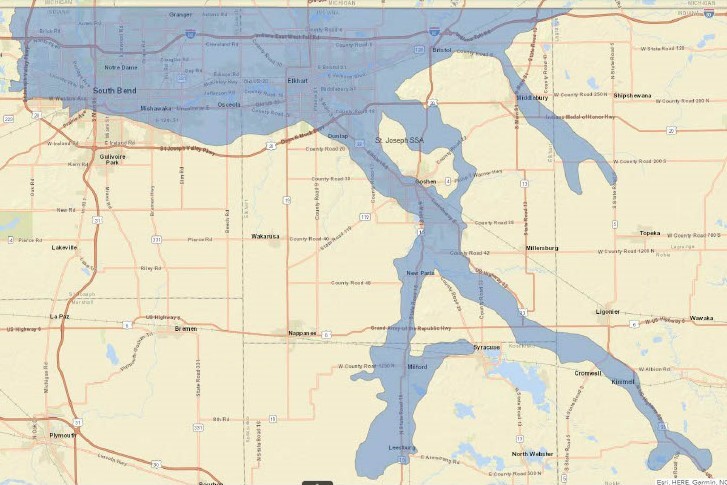Property Transfer Ordinance Changes Effective July 1, 2024
Due to recent changes in the Indiana State Code, the requirements for septic inspections during the property transfer process have changed.
Property transfer inspections of the septic system are only required for properties located within the St Joseph Aquifer System, which is Indiana’s only sole-source aquifer system. Further, septic inspections are only required if the property has not transferred or had a new system installed within the last fifteen years.
EPA defines a sole source aquifer (SSA) as one where:
- The aquifer supplies at least 50 percent of the drinking water for its service area.
- There are no reasonably available alternative drinking water sources should the aquifer become contaminated.
To find out if a property falls within the aquifer, enter the property address into this link: https://epa.maps.arcgis.com/apps/webappviewer/index.html?id=9ebb047ba3ec41ada1877155fe31356b or go to the interactive map located at www.epa.gov/dwssa under SSA Locations click “Interactive Map of SSAs."
The water testing requirement has not changed. All properties transferring within St Joseph County are required to test the water quality for: total coliform bacteria, E.coli bacteria, nitrates, and arsenic prior to closing.
A property transfer application, along with the water test results or proof of City utilities, must be submitted to the St. Joseph County Department of Health within five days of closing.
There is no fee for the property transfer.
Please direct any questions regarding the property transfer process to the Department of Health at envirohd@sjcindiana.gov or 574-235-9750.
